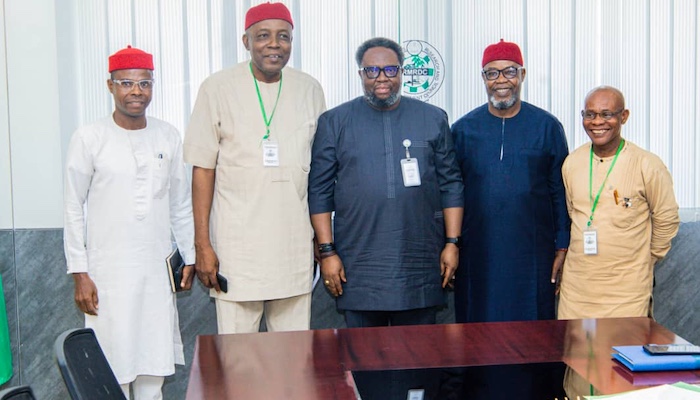
The South-East region is seeking over N200 billion to resuscitate its economy, accelerate development, and incentivise Ndi-Igbo across the world to “think home” in their investment choices.
The South East Business and Investment Summit Group, in collaboration with the Enugu State Government, multilateral organisations, traditional institutions in the region, as well as political and religious leaders, is spearheading efforts to re-energise the region’s economy.
Speaking during a roadshow/town hall meeting organised by SEBIS in Abuja, its Executive Secretary, Dr Ifedi Okwenna, revealed that the organisation is set to launch the first phase of a N50 billion Micro, Small and Medium Enterprises (MSME) Fund to revitalise small businesses in the region.
The former Commissioner for Environment, Anambra State, further revealed that the second phase, which involves bankable projects, requires no fewer than N200 billion for successful implementation.
He, however, regretted that the Igbo apprenticeship scheme, which has been recognised by the Harvard School of Economics and the United Nations as one of the most effective models for poverty alleviation, is dying out in the South-East.
He stated: “We are launching a N50 billion MSME fund, which will take place on 26th October. The fund will be a dedicated one, which we plan to use to re-energise MSMEs in the South-East. We are the hub of MSMEs, but we are no longer doing well.
The Igbo apprenticeship scheme, which birthed the MSME culture, is dying. To resuscitate it, we need to apply the accelerator, so that when the youths learn a trade but lack working capital, the MSME fund can fill the gap.
There will be a microfinance bank to disburse and monitor the fund. It is primarily targeted at youths and women.”
He added: “There are also bankable projects which we have already packaged and which will require about N200 billion to implement.
We have studied eight thematic areas, conducted feasibility studies, and developed business plans and break-even points to make joint ventures feasible.
Projects like ranching are included, because the South-East is among the largest consumers of beef.
Therefore, we need ranches across the South-East states to supply meat factories.”
Stressing that the region will use business to re-engineer and remake Ala-Igbo as a thriving economic hub once again, Dr. Ifedi said: “When you look at agriculture, you will find that Michael Okpara, the then Premier of the Eastern Region, did wonderfully well. If the South-East was then developed based on agriculture, we must now re-engineer agriculture.
And in re-engineering agriculture, we must reorganise it and begin to focus on agro-processing, ensuring at least 30 per cent value addition.”
The former President of the Senate, Senator Ken Nnamani, encouraged Ndi-Igbo to take national politics seriously, while continuing to invest in business and agro-processing, noting that one government policy could destroy years of investment.
He warned that re-engineering the South-East economy should not interfere with the natural drive of its people to travel and make their mark wherever they are.
He urged those privileged to be in positions of authority at the national level to push for policies that support prosperity in the South-East.
Insisting that the region is marginalised, Nnamani explained that the South-East is the only one of the six geo-political zones with only five states, while the others have six or seven.
The former Secretary to the Government of the Federation, Senator Anyim Pius Anyim, expressed regret that the Igbo have the capacity, talent, and ability for excellence, but lack the support systems needed to unlock their full potential.
He urged the Igbo to learn from the Catalans, who looked inward, developed their God-given talents, and built the strongest economy in Spain.
“Nobody is coming to invest in the South-East when the enabling environment for profitable business does not exist,” he lamented.
The Ex-President of the Senate added, “It is the government that must provide the enabling environment. If someone comes to invest and must provide infrastructure, generate power, ensure security, and source water on their own, it is not sustainable.”
Linus Aleke


